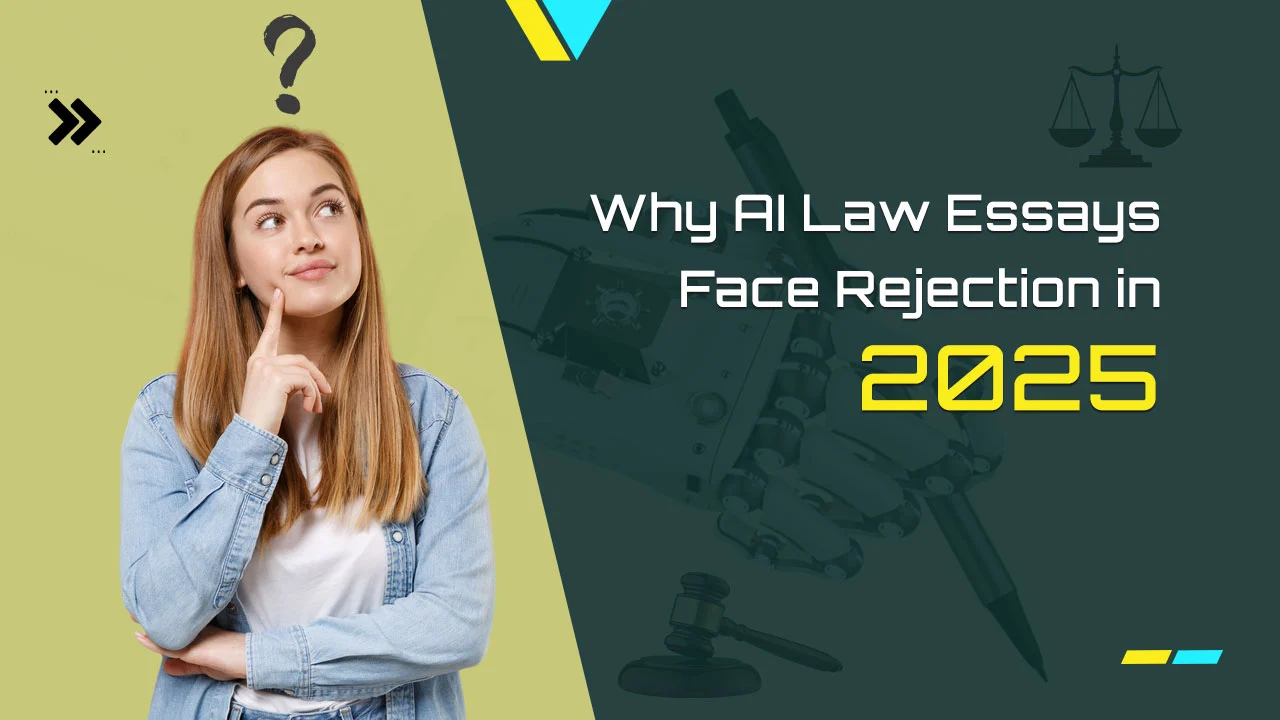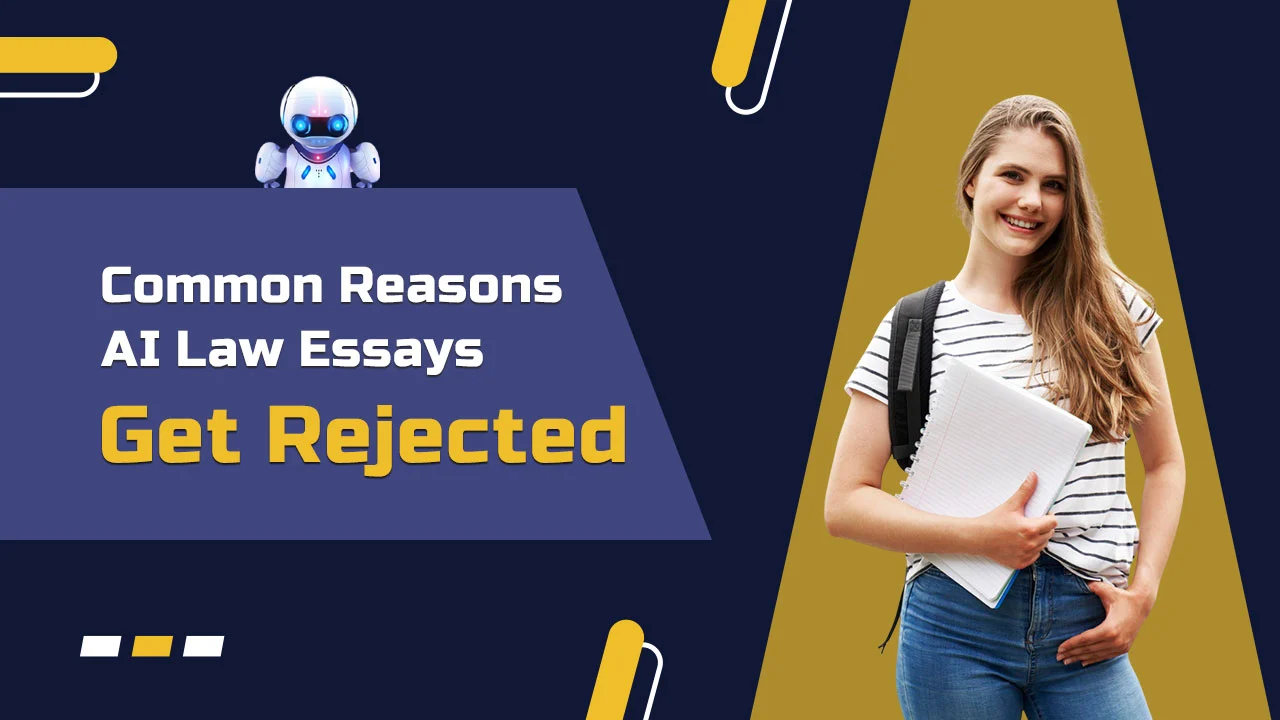

Introduction
In 2025, AI tools will continue to be a popular way for law students to quickly find writing help and ultimately write their essays. Even though these AI technologies produce writing in seconds, not all of the writing produced by AI is of a suitable academic level. Because of the introduction of AI into legal writing, many law schools are being more cautious in reviewing papers to catch and reject essays of lower quality that are not original and/or do not follow specific guidelines. AI-written essays often will contain incorrect applications of law, errors in citation and references, and will lack critical or analytical engagement with sources, which are all undesired features that professors look to find in submitted essays. If students understand the common reasons for rejection, they can better learn how they can more or less successfully utilise AI or work with a law assignment helper and not suffer significant academic consequences as a result.

Common Pitfalls Leading to AI-Generated Law Essay Rejections
1. Incorrect Interpretations of Law
AI-powered tools rely heavily on data that was trained months or years ago, and in doing so they can often misinterpret laws, cases, or statutes based on the more recently nuanced understandings based on jurisdiction. In 2025, many law colleges and faculties are quick to reject assignment submissions that contain errors, particularly legal errors, due to their inability to trust the credibility of the submission. AI can confuse older precedents, misapply legal principles, or worse yet, depend on legislative changes that have taken place after the data was produced. Law professors expect assignments to be current, lawful, and demonstrate a precise understanding of the law with proper contextual factors and changes, including an accurate law dissertation structure where applicable. Any and all slight misinterpretation of the law suggests a lack of proper research and understanding, and result in a fast rejection of anything produced by an AI process.
2. Citation is a cornerstone of legal writing
AI-generated essays do not generally fulfil such exacting demands. For instance, by 2025, incorrect referencing style, insufficient case citations, and completely made-up reference materials were among the top reasons for rejection of an academic paper. AI may create references that do not exist, or reference formats that seamlessly meld different referencing sources (OSCOLA, APA, Bluebook), or be altogether inconsistent. Professors must see law essays that include authentic and verifiable references, which have been cited correctly as not to question research legitimacy. When such questionable references are seen, they are outdated with an incorrect format, then the author's academic integrity is called into question. This alone can result in a fail or even a student being expelled from the course, which is why many students now seek law essay help to ensure accuracy, consistency, and credibility in their work.
3. Dependence on Generic Content
AI-generated essays are often NOT original, which is compounded by repeated phrases and generic legal statements that do NOT display the author's engagement with a legal problem. Universities are MORE often rejecting this kind of content in 2025 because it does NOT go beyond publicly available material. Law professors want students’ essays to use the work as a base and to seek and apply legal principles to a specific problem or case in a novel way. Depending on AI templates leads to banal and formulaic writing, which is often flat and empty. If AI turns into limited, re-phrased or plagiarised excerpts without the ability to use personal examples, case-specific applications or new arguments, nothing can seem convincing to examiners that it is a student's work. Something a law coursework writing service UK can help address by ensuring originality, depth, and academic integrity.
4. Not Answering the Question Completely
Even when AI writes grammatically correct essays and uses good logic, it doesn't always tend to answer the specific question asked. In 2025, law professors are rejecting essays that veer, if even slightly, from the question or fail to address all parts of a problem. AI may produce a broad discussion of a topic but miss the specific requirements of applying statutes that are specific, relevant case law, and where the other side is coming from. In academics, it is about being specific and relevant. If an essay does not address the question, regardless of how well written, it will not likely earn a passing grade, especially in specialised topics such as an assignment land law, where precision and focused application are essential.
5. Detection by AI-Content Tools
As artificial intelligence becomes more prevalent in academia, so does the ability to detect it. In 2025, universities will utilise advanced AI-detection software, which was designed to reveal patterns in AI-generated texts. These tools flag essays for having unnatural sentence structure, exaggeratedly similar tone, and cliched formatting indicators of a common AI document. When an essay is flagged, a professor usually will go back and look closer at the essay, which makes it easier for them to spot the other weaknesses in the essay. Even if the content is correct, the identification of AI as an assistant to help generate the written work (with little human contribution) can lead to rejection, particularly in complex tasks such as law dissertation writing. It is therefore essential that students adapt, modify, and humanise drafts created by large language models.

Read also: Time-Saving Legal Writing Strategies for Law Students
Conclusion
AI tools will be an excellent tool for providing support in legal research and drafting, but to use AI indiscriminately for law essays is a high-risk proposition for many reasons. Any number of reasons, including lack of critical analysis, incorrect legal concepts, sloppy referencing, lack of originality, not answering the prompt, or having your work flagged by AI-detecting tools, can result in hobbling academic outcomes. Law schools prize originality, accuracy, and intellectual rigour, which are usually absent from AI tools. The best approach is to use AI as an initial framework to guide your writing to a point, and to subsequently improve upon that framework with research, analysis, and personal insight so your finished work is a reflection of the expected rigour of legal education.
